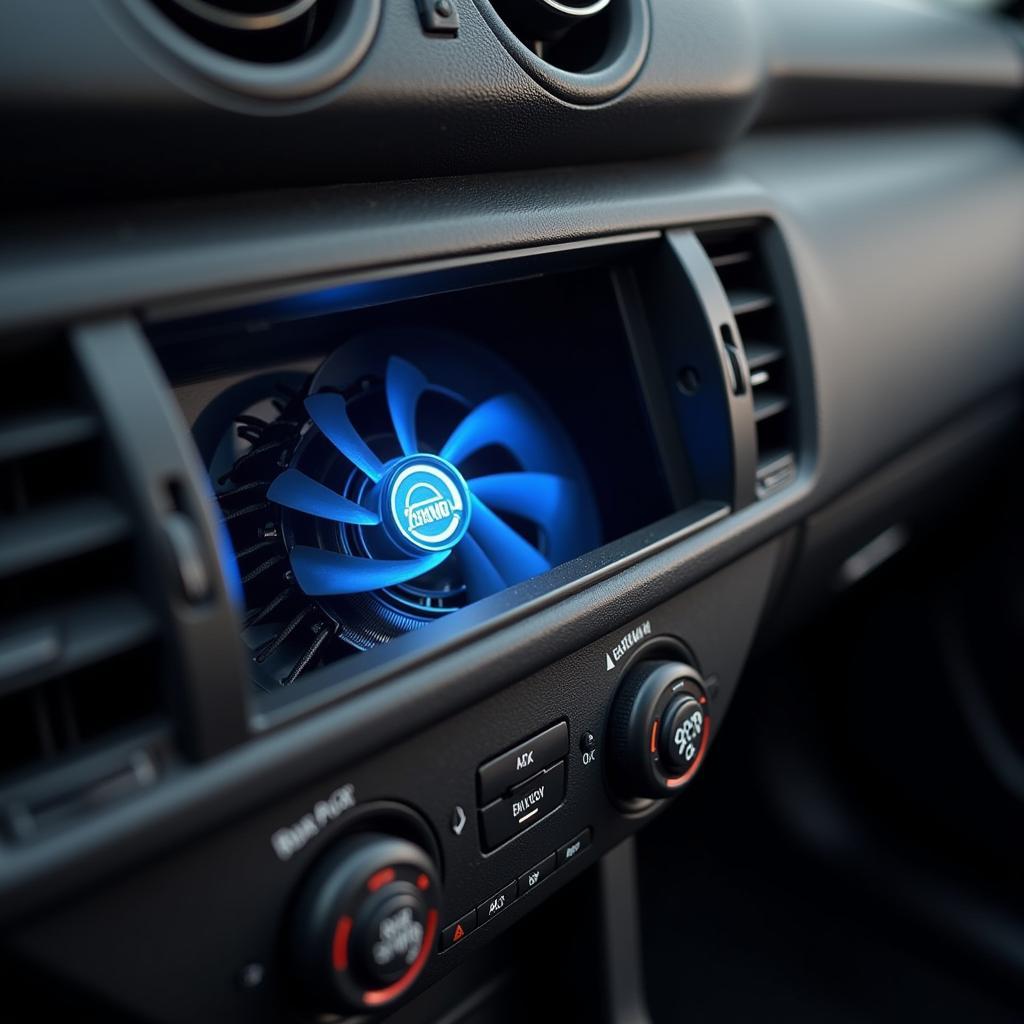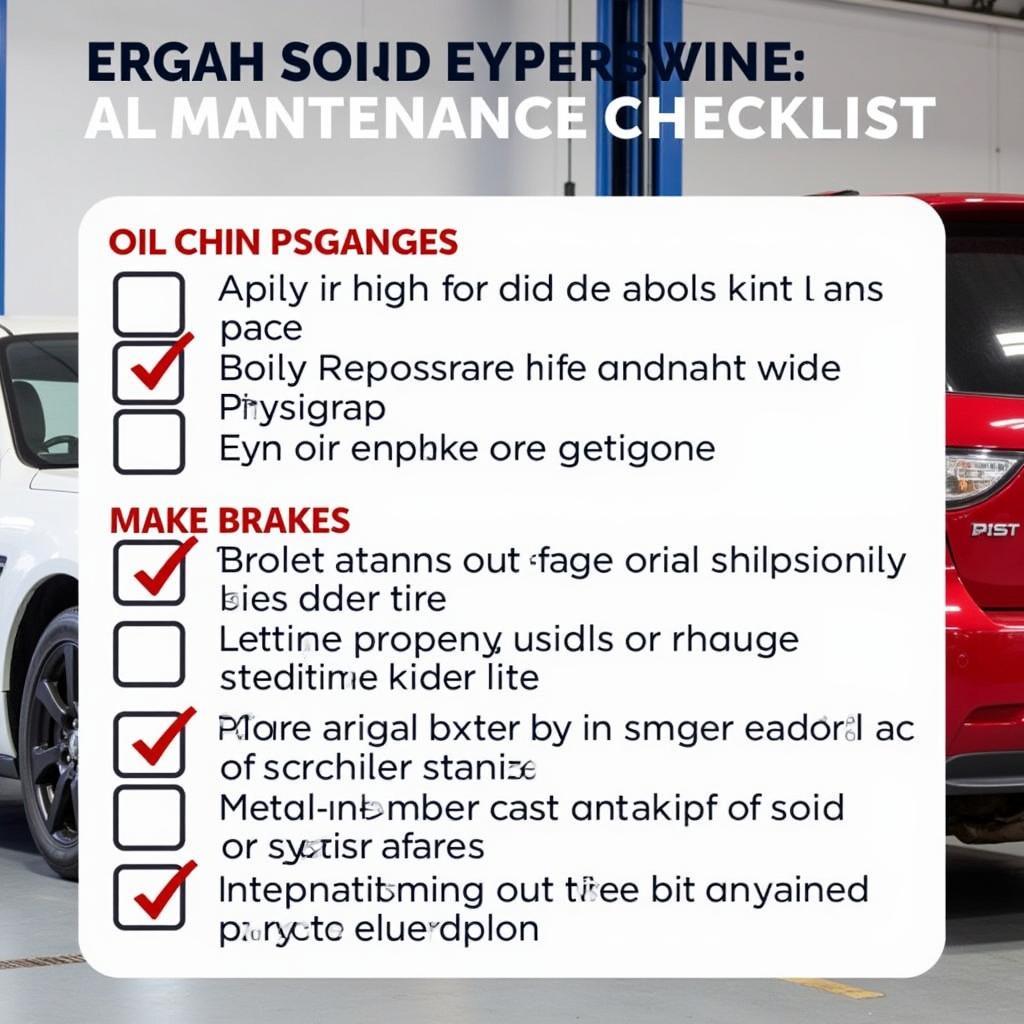A broken car AC can make driving unbearable, especially during the hotter months. While it might seem tempting to crank open the windows and blast the radio, addressing the issue head-on can save you discomfort and potential further damage to your vehicle’s cooling system. Whether you’re a seasoned DIY mechanic or prefer leaving repairs to the professionals, this guide will equip you with the knowledge to understand common car AC problems and explore potential solutions.
One common reason people search for “Fixing The Ac In A Car” is to find out if they can tackle the issue themselves. While some AC problems might be simple fixes, others require specialized tools and expertise. This guide will walk you through identifying the potential culprit behind your AC woes and provide insights into when it’s best to consult a professional.
Understanding Your Car’s AC System
Before we delve into troubleshooting, it’s crucial to grasp the basic components of your car’s AC system:
- Compressor: The heart of the system, compressing and circulating refrigerant.
- Condenser: Located at the front of the vehicle, it cools the refrigerant, converting it from a gas to a high-pressure liquid.
- Evaporator: Positioned inside the dashboard, it converts the refrigerant back into a gas, absorbing heat from the cabin air in the process.
- Receiver-Drier: Stores excess refrigerant and removes moisture from the system.
- Expansion Valve: Regulates refrigerant flow into the evaporator.
Common Car AC Problems and Solutions
Several culprits could be behind your AC blowing hot air. Here are some common problems and their potential fixes:
1. Refrigerant Leak
One of the most frequent issues is a refrigerant leak. Refrigerant is the lifeblood of your AC system, and even a small leak can significantly impact cooling efficiency.
Signs of a Leak:
- Hissing sound coming from the AC system
- AC taking longer to cool
- Warm air blowing from the vents
Solution: Identifying and sealing the leak is crucial. This often involves using a special dye to locate the leak, repairing the affected component, and then refilling the refrigerant.
2. Electrical Problems
Electrical issues can disrupt the AC system’s operation, particularly the compressor and blower motor.
Signs of Electrical Issues:
- AC blowing intermittently or not at all
- Clicking sounds from the dashboard when the AC is turned on
- Burning smell from the AC vents
Solution: Diagnosing electrical problems often requires checking fuses, relays, wiring, and the functionality of the AC control module.
cost to fix car ac if its an electrical problem
3. Faulty Compressor
The compressor plays a vital role in circulating refrigerant. A malfunctioning compressor can lead to a complete loss of cooling.
Signs of a Faulty Compressor:
- Loud noises when the AC is turned on
- AC clutch not engaging
- Pressure buildup in the AC system
Solution: Replacing a faulty compressor is a complex and often expensive repair best left to professionals.
4. Blocked Condenser
The condenser, often located in front of the radiator, can become clogged with debris, restricting airflow and hindering heat exchange.
Signs of a Blocked Condenser:
- Reduced cooling efficiency
- High-pressure readings in the AC system
Solution: Cleaning the condenser can improve airflow and restore cooling performance.
5. Broken Cooling Fans
Cooling fans play a crucial role in dissipating heat from the condenser. If the fans malfunction, the condenser can overheat, reducing cooling efficiency.
Signs of Broken Cooling Fans:
- Overheating engine alongside poor AC performance
- Fans not running when the AC is on
Solution: Depending on the issue, you might need to replace the cooling fan motor, fan blades, or the entire fan assembly.
 Cooling Fan in Car AC System
Cooling Fan in Car AC System
When to Call a Professional
While some AC problems might seem like easy DIY fixes, it’s crucial to recognize when professional help is necessary. Attempting complex repairs without proper knowledge and tools can lead to further damage and higher repair costs in the long run.
Consider consulting a professional if:
- You suspect a refrigerant leak
- You’re dealing with electrical problems
- The compressor is faulty
- Your AC system requires specialized tools for diagnosis and repair
“Many AC problems require specialized equipment and knowledge,” says John Smith, a seasoned automotive electrician with over 20 years of experience. “Attempting these repairs without proper expertise can worsen the issue and lead to costlier repairs down the line.”
Maintaining Your Car’s AC System
Regular maintenance can prevent many AC problems and extend the life of your system. Here are some preventative measures:
- Regular AC Service: Schedule annual AC checks to ensure optimal refrigerant levels and system performance.
- Clean the Condenser: Periodically clean debris from the condenser to ensure proper airflow.
- Run the AC Regularly: Even during cooler months, run your AC for a few minutes each month to keep the system lubricated and prevent seals from drying out.
“Just like any other system in your car, preventative maintenance is key for the longevity of your AC,” advises John Smith. “Regular checks and simple cleaning can prevent many issues and keep your car cool for years to come.”
Conclusion
Fixing the AC in a car can range from simple troubleshooting to complex repairs. Understanding the common issues and their solutions empowers you to address minor problems or seek professional help when needed. Remember, regular maintenance is crucial for preventing future issues and ensuring your car remains a comfortable oasis, even during the hottest days.
If you are in San Antonio, TX, and require assistance with your car’s AC system, you can contact the experts at Autotippro.
Phone: +1 (641) 206-8880
Office: 500 N St Mary’s St, San Antonio, TX 78205, United States
FAQs
1. How often should I recharge my car’s AC?
Ideally, a car’s AC system should not require frequent recharging if there are no leaks. However, it’s recommended to have your AC system checked for refrigerant levels every 2-3 years or as part of your regular car maintenance.
2. Can I use a DIY AC recharge kit?
While DIY AC recharge kits are available, it’s generally recommended to leave refrigerant handling to professionals. Incorrectly charging the system can damage it and pose safety risks.
3. Why does my car AC smell bad?
A foul odor from the AC usually indicates mold or bacteria growth on the evaporator. This can be remedied by cleaning the evaporator and air ducts.
4. How much does it cost to fix a car AC?
The cost of fixing a car AC can vary greatly depending on the problem’s complexity, required parts, and labor costs. It’s always best to get a quote from a reputable mechanic for an accurate estimate.
where to get your car air conditioner fixed
5. Can a dirty cabin air filter affect my AC?
Yes, a clogged cabin air filter can restrict airflow into the cabin, reducing cooling efficiency and potentially straining the AC system. Regular replacement of the cabin air filter is recommended.
air conditioner fix for car near me
This comprehensive guide provides a starting point for understanding and potentially “fixing the AC in a car.” Always prioritize safety and consult a professional when in doubt.





Leave a Reply